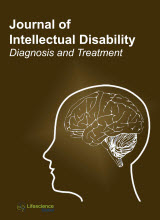jiddt
|
|
Abstract: Objective: The purpose of the study is the theoretical substantiation and testing of the methodological apparatus for determining the possibility of self-improvement and maintaining the level of personal psychological attitudes for social and professional interaction. Keywords: Self-development, additivity, structure, personality, psychology.
|
|
|
Abstract: Objective: The need to develop methods of management of scientific – research activity using the case method is obvious in the framework of special education. Keywords: Case-method, research experiment, new conditions of professional activity, pedagogical observation, activity in the education system.
|
|
|
Abstract: Objective: To create one of the possible conditions for student-centred education, the authors’ research group developed a tutoring support programme for adaptation of students to the educational process of the school and implemented it into practice. Keywords: Inclusive education of Kazakhstan, student academic support, tutor, tutoring.
|
|
|
Abstract: Objective: The authors provide justifications for changing the current education system, updating the teaching and methodological approach in school specialised education. The paper investigates the issue of fashioning students' research competence through the technology of project activities. Keywords: Educational systems, cognitive skills of students, project technology, educational courses, specialised education.
|
|
|
Abstract: Objective: The purpose of this study is to form the arithmetic musical competency of students on the basis of Al-Farabi’s theoretical musical heritage. In this context, the work “The Great Book of Music” is of great importance. In this work, he gives not only a scientific explanation of the origin of sounds as properties of matter but also gives an idea of the arithmetic principles of the emergence of harmony and musical melodies. Keywords: Musical instruments, mathematical theory, musical competence, numerical art, interval.
|


